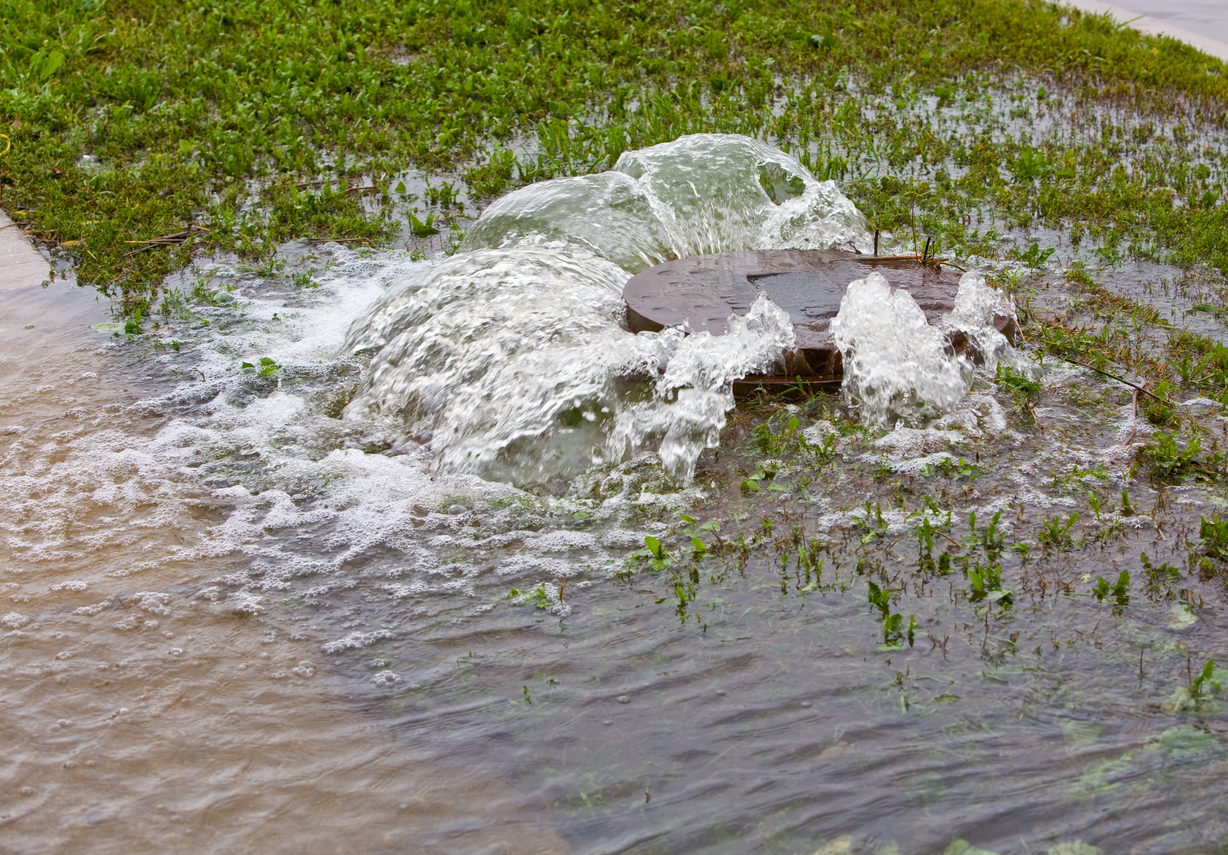Not that you don’t have enough to worry about in 2020, but the last thing you need is your municipal water system inviting itself into your home and causing a lot of water damage. If a municipal pipe overflows, breaks or causes a backup, does that count as surface water? Who is responsible, your municipality? Your insurance company?
Many municipalities have immunity for events like these absent some sort of negligence on their behalf. Most insurance companies will deny this claim stating this is excluded under their “Water” exclusion which includes “flood” and “surface water”.
In Union Street Furniture and Carpet, Inc. v. Peerless Indemnity Insurance Company,1 Union’s property was severely damaged by water when a substantial rainfall occurred in the area which caused water to enter the property through the walls, chimney and skylight. Most of the damage was caused by water that flowed into the facility from the parking lot through the loading dock.
Peerless argued the water damage to Union’s business personal property was not an insured loss because the damage was caused by a “flood” or by “surface water.” Peerless also argued that the water that came through the roof that also damaged the business personal property was “surface water” and because of the anti-concurrent clause, the contents were not insured.
In rejecting Peerless’ interpretation of the term “surface water,” the court, citing cases and authority from other jurisdictions, indicated that water from precipitation (rain or snow) flowing on the ground outside of any defined channel, but that water which accumulates on a roof from rain, does not qualify.
The Union case is factually distinguishable from Gemini Color Lab v. Hartford Casualty Insurance Company.2 In Gemini, the plaintiff’s property was damaged as a result of a backup from a drain connected to the sanitary sewer after a flash flood. The Gemini court cited a Texas appellate court, State Farm Lloyd v. Marchetti,3 which stated that “when the loss is a consequence of the invasion of the insured premises by non-flood water, even though the invasion may have been proximately caused by flood water, the [water] exclusion does not apply.”
The issue regarding the legal definitions of “surface water” and “flood” vary from jurisdiction to jurisdiction and come in many shapes and sizes. If your insurance carrier denies your claim for “surface water” or “flood,” make sure you call one of our attorneys to assist you with your claim.
I leave you with a quote by painter, Erik Pevernagie, who said “when the flood submerges the whole country, no raindrop may feel responsible.”
_________________________________
1 Union Street Furniture and Carpet, Inc. v. Peerless Indem. Ins. Co., 54 Conn. L. Rptr. 849, 2012 WL 5519614 (Conn. Super. Ct. Oct. 23, 2012),
2 Gemini Color Lab, Inc. v. Hartford Cas. Ins. Co., 36 Conn. L. Rptr. 605, 2004 WL 574676 (Conn. Super. Ct. Mar. 8, 2004).
3 State Farm Lloyd v. Marchetti, 962 S.W.2d 58, 61 (Tex. App. 1997).




